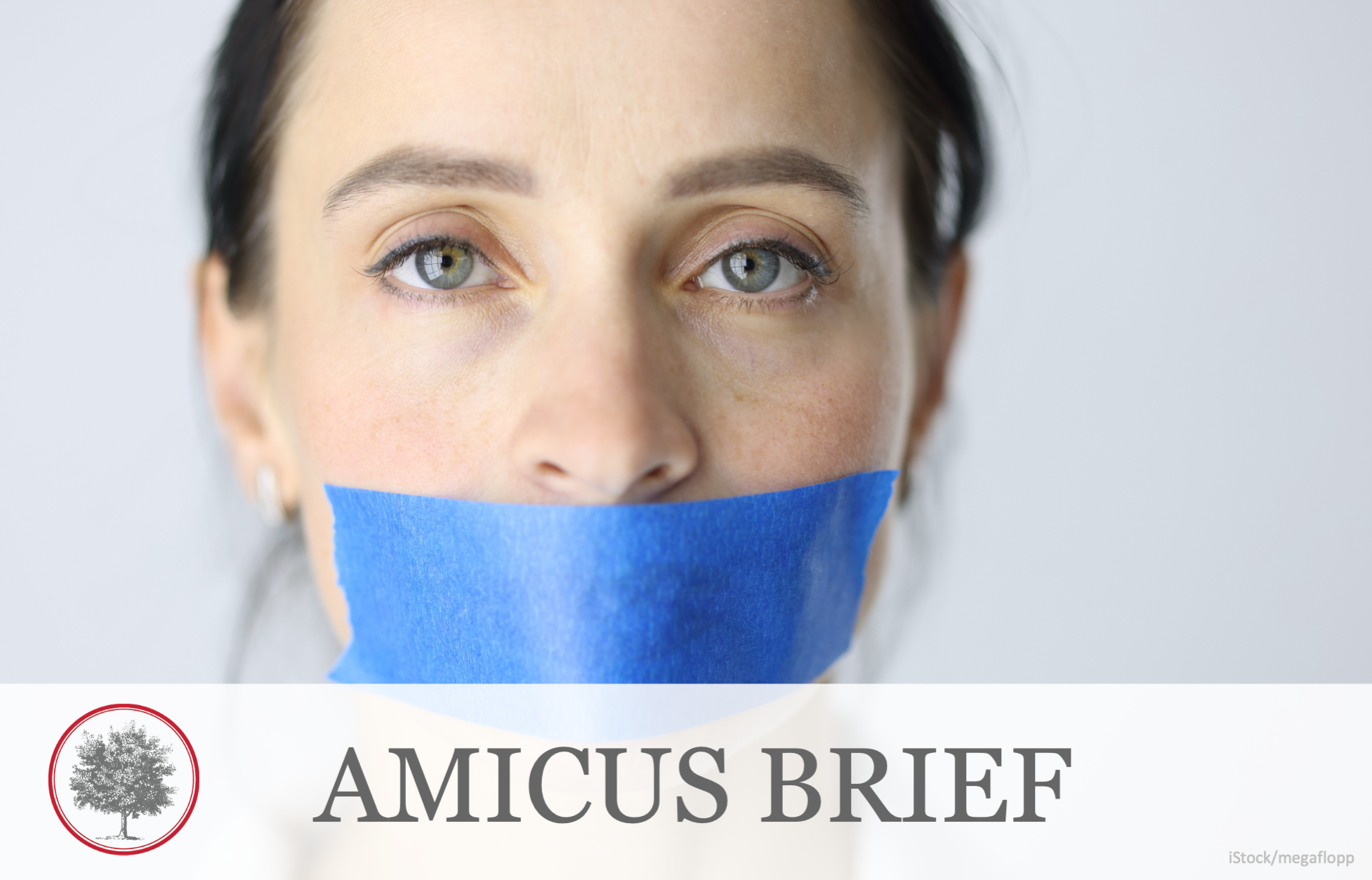Legal Briefs
The Buckeye Institute Calls on SCOTUS to Protect Teachers’ 1st Amendment Rights Beyond Schoolhouse Gates
February 11, 2026

The Buckeye Institute filed an amicus brief in Hedgepeth v. Britton, calling on the U.S. Supreme Court to hear the case and protect the First Amendment rights of government employees, including teachers. This case illustrates the tension between suppressing speech based on a heckler’s veto and protecting out-of-school speech that does not actually disrupt the learning environment or undermine the employee’s ability to fulfill his or her job.
The Buckeye Institute Calls on SCOTUS to Revive Judicial Review
February 05, 2026

The Buckeye Institute filed an amicus brief in Carbin v. Massachusetts Board of State Examiners of Plumbers and Gas Fitters, calling on the U.S. Supreme Court to hear the case and revive the judiciary’s independent duty to interpret and enforce constitutional limits. The Manhattan Institute joined The Buckeye Institute in filing its brief. “The Constitution was not designed to subordinate liberty to legislative convenience, and due respect for Congress does not entail blind acceptance of its assertions.”
The Buckeye Institute Calls on Court to End Forced Quartering of Government-Mandated Monitors
January 23, 2026

The Buckeye Institute filed an amicus brief with the U.S. Court of Appeals for the First Circuit in Relentless v. U.S. Department of Commerce, calling on the court to reverse the lower court’s ruling and throw out a U.S. Department of Commerce rule that forces commercial fishermen to house, feed, and pay the salaries of their government-mandated monitors. In reaching its decision, the lower court ignored the U.S. Supreme Court’s landmark decision overturning the Chevron doctrine—judicial deference to executive agencies’ interpretation of the law.
The Buckeye Institute Appeals Toledo Public Schools Union Wage Theft Case
January 16, 2026

The Buckeye Institute filed its appeal brief in DuPuis v. American Federation of State, County and Municipal Employees (AFSCME) with Ohio’s Sixth District Court of Appeals, calling on the court to reverse the lower court’s dismissal of the case and end the union’s wage theft practices. “Ohio’s Constitution is clear, ‘All courts shall be open, and every person…shall have justice administered without denial or delay.’”
The Buckeye Institute Files Brief Responding to U.S. Government’s Unconstitutional Theory in Home Distilling Case
January 14, 2026

The Buckeye Institute filed a supplemental brief in Ream v. U.S. Department of Treasury—its case seeking to overturn the federal ban on home distilling—in response to the U.S. Court of Appeals for the Sixth Circuit ordering the government to address the constitutional claims at stake.
Nationally Renowned Groups File Brief in Support of The Buckeye Institute Union Wage Theft Case
January 13, 2026

After The Buckeye Institute filed its appeal asking the Ohio Supreme Court to hear Sheldon v. OAPSE, Freedom Foundation, Liberty Justice Center, Mackinac Center for Public Policy, and National Right to Work Legal Defense Foundation filed an amicus brief in support of The Buckeye Institute’s client Matthew Sheldon, urging the court to take the case and put an end to illegal union wage theft.
The Buckeye Institute Files 4th Brief in Pandemic Era Unemployment Bonus Case
December 18, 2025

The Buckeye Institute filed its fourth amicus brief with the Ohio Supreme Court in Bowling v. DeWine, urging the court to affirm, once and for all, that Ohio’s Cooperation Statute does not require the governor to accept federal money every time it is offered. The statute is crystal clear in stating that nothing “precludes the director from ceasing to participate in any voluntary, optional, special, or emergency program offered by the federal government.”
The Buckeye Institute Argues Its Case Seeking to Overturn Federal Ban on Home Distilling
December 10, 2025

The Buckeye Institute delivered its oral argument before the U.S. Court of Appeals for the Sixth Circuit in Ream v. U.S. Department of Treasury, calling upon the court to overturn the federal government’s unconstitutional ban on home distilling, arguing that the statute exceeds Congressional authority under Article I of the U.S. Constitution and violates the Tenth Amendment. “The constitutional rights of all Americans are before the court.”
The Buckeye Institute Files Second Brief Defending School Choice in Court
December 08, 2025

The Buckeye Institute filed its second amicus brief in Columbus City School District v. State of Ohio, rebutting the school districts’ claim that Ohio’s school choice program violates the equal protection clause of the Ohio Constitution. “The plaintiff’s underlying theme in its appeal is that money equals education and that more money means better education. This trope has long been refuted, both nationally and in Ohio.”
The Buckeye Institute Calls on SCOTUS to End Odious Practice of Home Equity Theft
December 08, 2025

The Buckeye Institute filed an amicus brief in Pung v. Isabella County, Michigan, calling on the U.S. Supreme Court to reaffirm that home equity theft violates the constitutional rights of homeowners, something the court affirmed just two years ago in Tyler v. Hennepin County. The Competitive Enterprise Institute, Illinois Policy Institute, Mountain States Legal Foundation, and National Federation of Independent Business joined The Buckeye Institute in filing the brief.
